
Graham Central Station was an American funk band named after founder Larry Graham. The name is a pun on New York City's Grand Central Terminal, often colloquially called Grand Central Station.
Azteca was a Latin rock band formed in 1972 by Coke Escovedo and his brother Pete Escovedo, who had just finished stints with Latin rock pioneering band Santana. Azteca was the first large-scale attempt to combine multiple musical elements in the context of a Latin orchestra setting, and featured horns, woodwinds, multiple keyboards, three vocalists, guitars, drums, and multiple Latin percussionists.

Santana is the third studio album by the American rock band Santana. The band's second self-titled album, it is often referred to as III or Santana III to distinguish it from the band's 1969 debut album. The album was also known as Man with an Outstretched Hand, after its album cover image. It was the third and last album by the Woodstock-era lineup, until their reunion on Santana IV in 2016. It was also considered by many to be the band's peak commercially and musically, as subsequent releases aimed towards more experimental jazz fusion and Latin music. The album also marked the addition of 16-year-old guitarist Neal Schon to the group.

Caravanserai is the fourth studio album by American rock band Santana, released on October 11, 1972. The album marked a period of transition for Santana as it was the band's last to feature several key early members, while shifting in a more instrumental, progressive jazz fusion direction. It sold in fewer quantities than the band's previous chart-topping albums, stalling at No. 8 on the Billboard LPs chart, but has been critically acclaimed.

Carlos Santana & Buddy Miles! Live! is a live album by Carlos Santana and Buddy Miles, released in 1972.
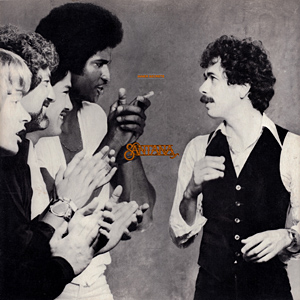
Inner Secrets is the tenth studio album by Santana. It was released in 1978 and, unlike the fusion of Latin, jazz, rock, and spirituality that characterized previous records, it was considered a rock album.

Oneness: Silver Dreams - Golden Reality is a 1979 album by Carlos Santana. It was his second of three albums to be released under his temporary Sanskrit name Devadip Carlos Santana, given to him by Sri Chinmoy. The album, which consists mostly of instrumental songs and ballads, features members of the band Santana, as well as Carlos Santana's first wife Deborah and father-in-law Saunders King. According to Santana, Oneness was influenced by Weather Report's album Mysterious Traveller. The track "Transformation Day" is an adaptation of part of Alan Hovhaness's symphonic work Mysterious Mountain.

Tower of Power is the third album release for the Oakland-based band, Tower of Power. This is their most successful album to date, which was released in May 1973.
Joseph Thomas "Coke" Escovedo was an American percussionist, who came from a prominent musical family including five musician brothers and his niece, Sheila E. He played in various genres, including R&B, jazz fusion and soul, with bands including Santana, Malo, Cal Tjader, and Azteca.

Peter Michael Escovedo Jr. is an American percussionist.

Moments is the third album by singer Boz Scaggs, released in 1971. It was his debut album on the Columbia label.

"All This Love" is a single by DeBarge, released on October 17, 1982. The song was released as the third and final single from their second studio album of the same title on the Gordy label. The single would help DeBarge rise to R&B stardom. A cover version of the song was recorded by Patti LaBelle on her 1994 gold album Gems. A video for her version was also filmed.
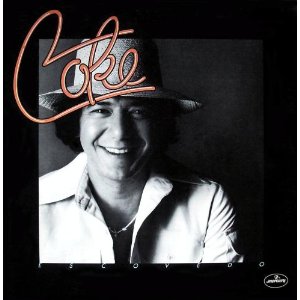
Coke is the first solo album by American percussionist Coke Escovedo, after his stints in the bands Santana and Azteca. The album was produced by Patrick Gleeson and released in 1975.

Comin' at Ya! is the second album by former Santana and Azteca band member Coke Escovedo. It was produced by Patrick Gleeson and released in 1976.
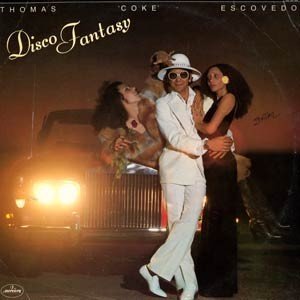
Disco Fantasy is the third and final album by the former Santana and Azteca band member Coke Escovedo. Produced by Patrick Gleeson, it was released in 1977 on Mercury Records.
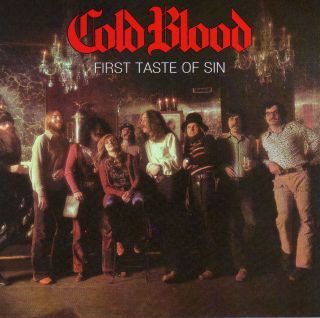
First Taste of Sin is the third album by the Oakland, California band Cold Blood. This album is noted for being produced by soul singer/musician Donny Hathaway. It also includes the original version of Hathaway's "Valdez in the Country", which Hathaway himself would record the next year for his 1973 album Extension of a Man.

Crickets is the eighth studio album by American country music artist Joe Nichols, released on October 8, 2013 by Red Bow Records. It includes a cover of Merle Haggard's "Footlights". The album sold 12,330 albums its first week.

The Man with the Sad Face is an album by jazz saxophonist Stanley Turrentine recorded for the Fantasy label in 1976 and featuring performances by Turrentine with an orchestra arranged and conducted by David Van De Pitte. The album consists of Turrentine's versions of many current pop and disco hits.
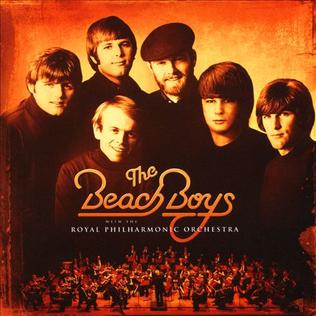
The Beach Boys with the Royal Philharmonic Orchestra is a 2018 album of remixed Beach Boys recordings with new orchestral arrangements performed by the Royal Philharmonic Orchestra. It was produced by Nick Patrick and Don Reedman, who conducted similar projects for Roy Orbison and Elvis Presley.

















